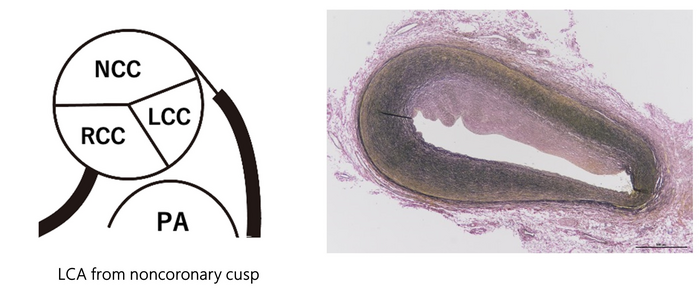Researchers from Tokyo Medical and Dental University (TMDU) utilize an advanced DNA sequencing technique to reveal the factors that contributed to the death of a 5-year-old child with COVID-19

Credit: Department of Forensic Medicine, TMDU
Researchers from Tokyo Medical and Dental University (TMDU) utilize an advanced DNA sequencing technique to reveal the factors that contributed to the death of a 5-year-old child with COVID-19
Tokyo, Japan – Sudden, unexplained child mortality is a tragedy; determining the cause of death is important for improving healthcare and providing loved ones with closure. Now, researchers from Japan have reported the use of an advanced DNA sequencing technique, whole-exome sequencing (WES), to determine why a young child died after a relatively mild infection.
In a study published this month in Frontiers in Immunology, researchers from Tokyo Medical and Dental University (TMDU) have revealed that a rare genetic disease may have made a young boy more susceptible to the effects of COVID-19, ultimately leading to death by cardiac arrest.
“We recently lost a 5-year-old patient who had been feverish for six days before being brought to the hospital by ambulance,” says Associate Professor Kana Unuma, lead author of the study. “He went into cardiac arrest in the ambulance and, despite undergoing cardiopulmonary resuscitation, died in the hospital. It was not immediately clear what led to this sudden mortality.”
To determine the cause of death, the researchers performed an autopsy and found that the child had severe anemia, abnormal levels of various types of blood cells, an unusually large liver and spleen, and an atypically located coronary artery. In addition, the patient tested positive for SARS-CoV-2.
“The complex abnormalities related to the heart and blood suggested the presence of an underlying disease, so we performed WES,” explains Professor Hirokazu Kanegane, senior author. “This test, which comprises a broad screen for variants that could account for disease, revealed a variant in LZTR1, a gene that was recently identified as being associated with Noonan syndrome (NS).”
Noonan syndrome is a rare genetic disorder; patients with NS typically have distinctive facial features and physical characteristics, intellectual disability, heart problems, and an increased risk of blood cancer. Once the genetic variant had been identified in the patient, the researchers were able to confirm the diagnosis of NS based on the child’s facial features. However, no other physical signs of NS were noted.
“The severity of NS in the patient was relatively mild and, thus, NS was not suspected. The cardiac arrest that led to his death could have been caused by fever and dehydration related to COVID-19 combined with the coronary artery anomaly, which may have caused fatal problems with heartbeat and blood flow,” says Associate Professor Unuma.
The atypical location of the coronary artery seen in this patient is one of the rarest known forms of heart defect and has been associated with several cases of sudden death in children. While this type of defect can go undetected, comprehensive molecular autopsy, like that performed on this patient, can detect genetic anomalies and identify causes of unexpected sudden death.
###
The article, “Case Report: Molecular autopsy underlie COVID-19-associated sudden, unexplained child mortality,” was published in Frontiers in Immunology at DOI: 10.3389/fimmu.2023.1121059.
Journal
Frontiers in Immunology
DOI
10.3389/fimmu.2023.1121059
Article Title
Molecular autopsy underlie COVID-19-associated sudden, unexplained child mortality




